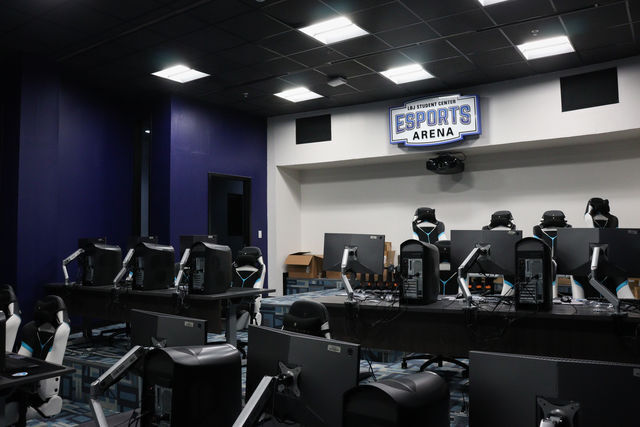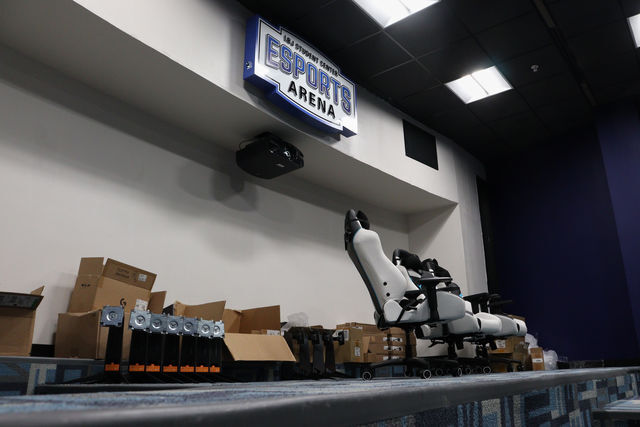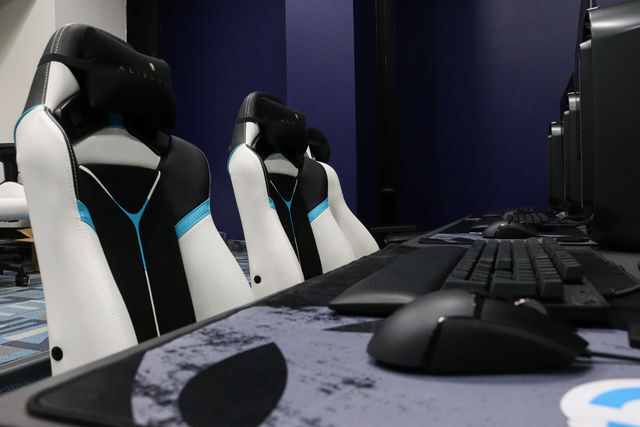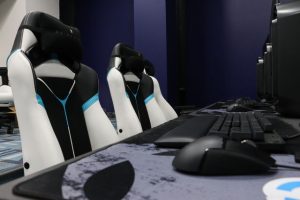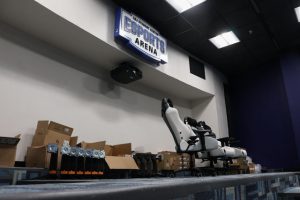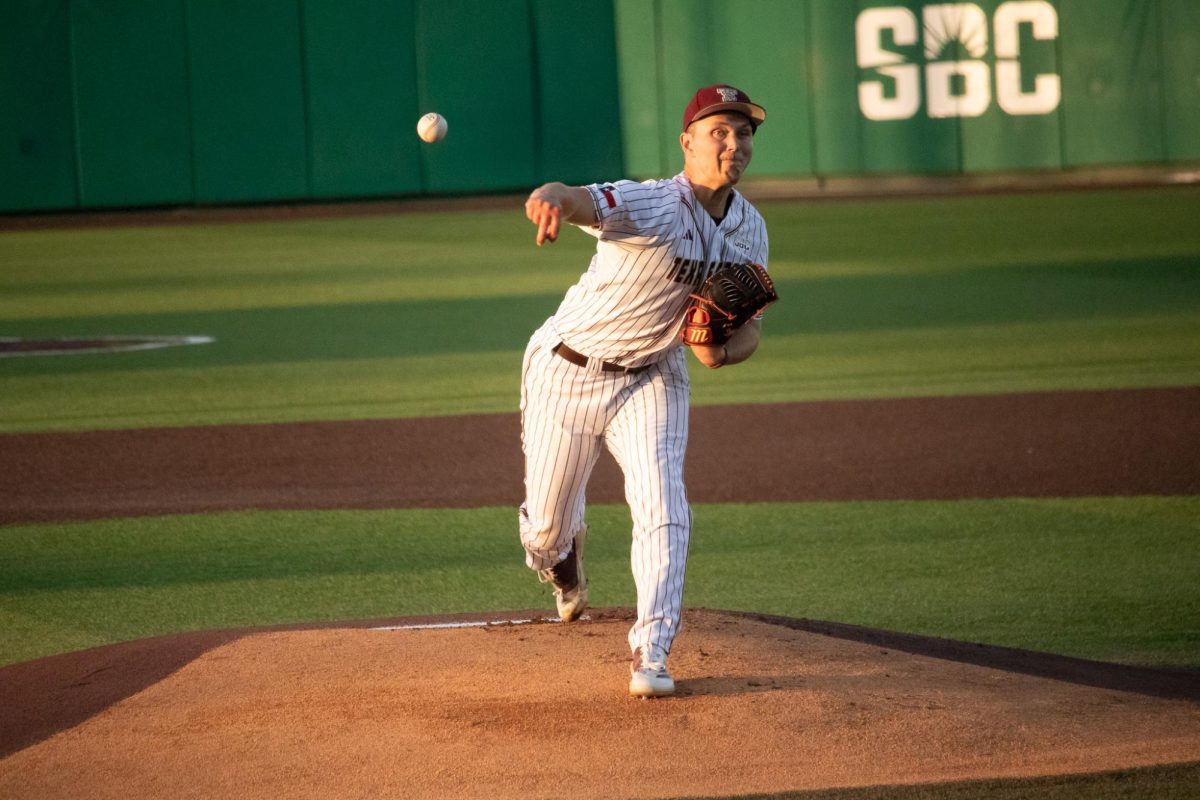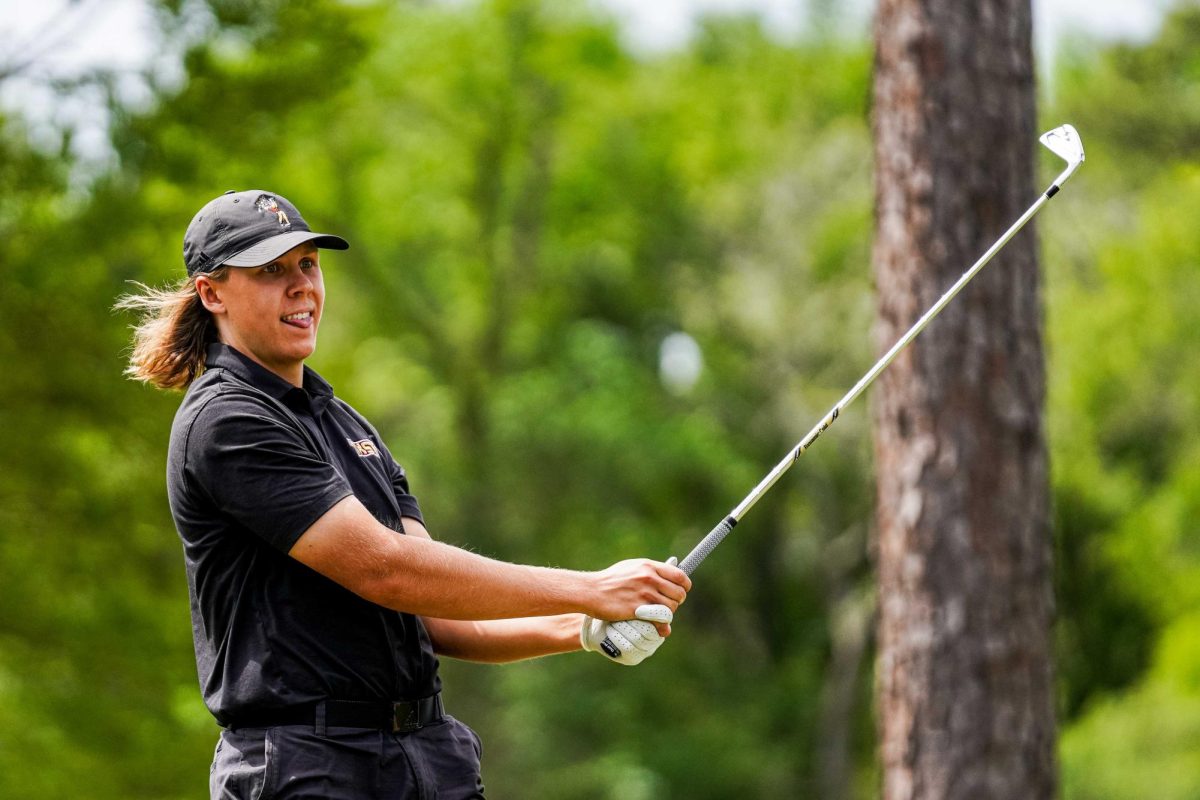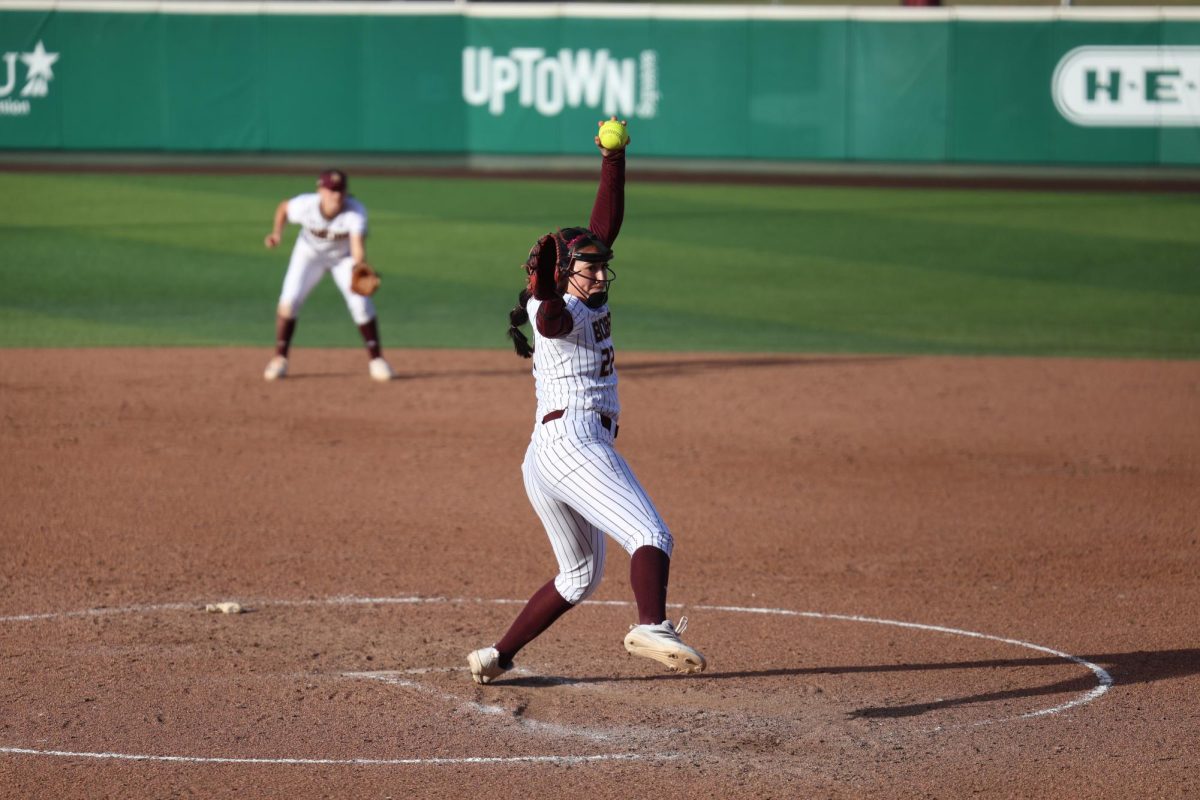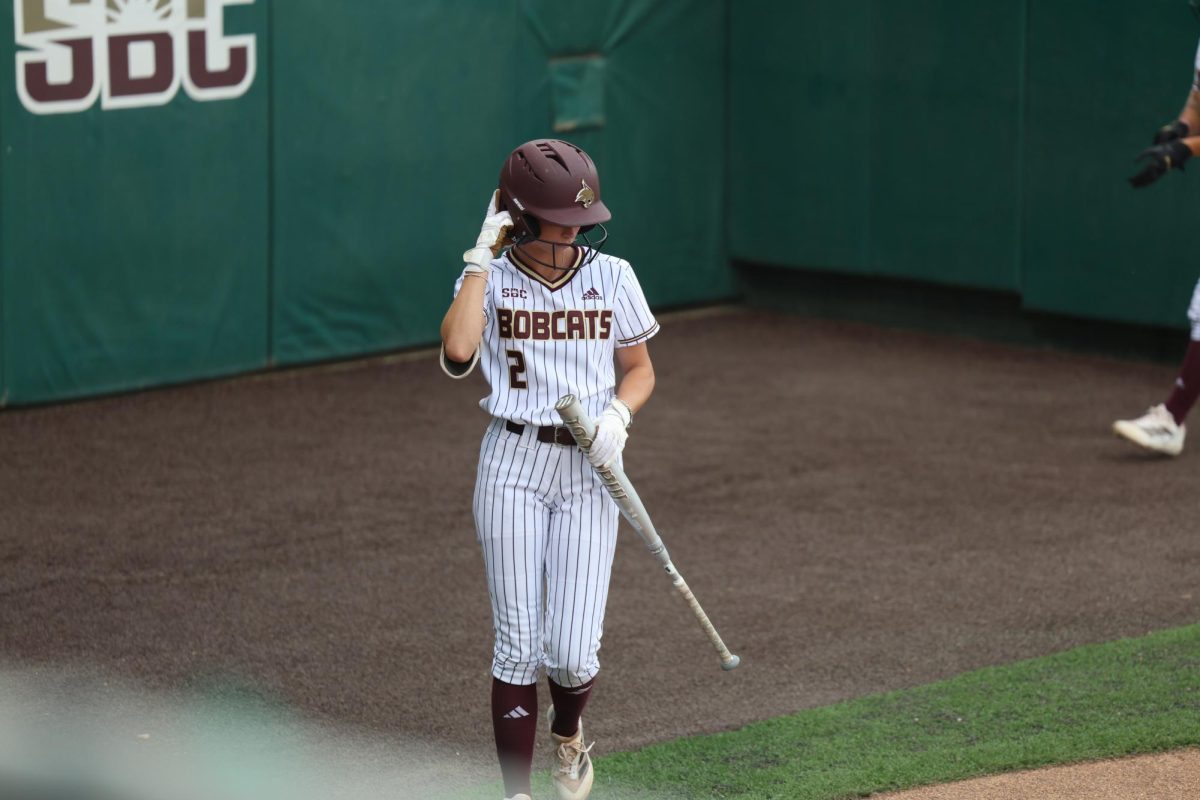As most club sports at Texas State struggle to function during COVID-19, the esports club has managed to raise its profile and find ways to participate in competitions safely.
With the already-virtual nature of esports, the club continues to compete remotely against other schools. The club has over 600 members in its discord, most of them non-competitive, and it currently competes in seven video games.
Assistant Director of Sports Clubs Mario Rios, who assisted in the creation of the esports club in 2018, says there is no roadmap on handling recreation during a pandemic.
“Unfortunately, there were some times where I met with our other clubs altogether, and I’m telling them, ‘No travel, no competition, you can’t do all this and all this,’” Rios said. “And then we get a hand raised from esports, ‘Can we compete?’ Then [I say], ‘Oh, right.’ [They] can compete in online competition in their home bases.”
The club is not allowed to gather more than 10 people on campus, meaning certain Local Area Network inclined games are on hiatus due to limitations in their online infrastructure.
The club’s president, fifth-year biochemistry senior Lukas Miller, says the Super Smash Bros., a series of crossover fighting games, team was most affected by this.
“Unfortunately, our [Super Smash Bros.] team is mostly in person,” Miller said. “They go to LAN events and because of COVID-19, we couldn’t actually have a team. We could have been online, but Nintendo online is bad. They’re on pause for now, at least till next semester. If things are still iffy, then we’re probably gonna have to [hold off] again.”
Health and safety regulations have made it difficult for the club to attract new members. A decreased presence on campus diminished the amount of recruitment the club could do.
“I think last year it was a lot easier to recruit because we were able to go to the [Quad], we were able to go to the Student Organization Fair,” Miller said. “I think that it’s hard for people to find the clubs. It’s not as easy as it was last semester with how much we were able to do in person.”
Members of the club also feel the difficulties of operating during COVID-19. Keeping in touch with a distanced community proves to be challenging with no gatherings to strengthen bonds and create shared experiences.
A few members recently left the club because of time management issues and work-life balance. The issue ripples down to the academy team, said Aatman Patel, a finance junior and captain of the Valorant academy team. Patel says practice stagnated leading up to the upcoming tryouts for the senior Valorant squad, which took place Oct. 23-24.
“Recently, we haven’t been playing a lot, especially since almost the entire [senior] team has gone,” Patel said. “We just realized that we might not be a team anymore, so [the academy] hasn’t been playing a lot recently. Also, school is getting in the way of how much they play online. They’re focused on school first, and then some people have work, so they haven’t been getting on as well.”
Prospective players may be drawn to Texas State in the near future, as the university has begun the construction of an esports arena. Located in the LBJ Student Center, the club will be able to use the arena for competitive matches and meetups once gatherings are once again permitted on campus.
Miller says the construction of the arena was not an idea the club presented to the school, but one the school offered in light of its success and growing popularity.
“Our Overwatch team last semester was top 10 in the nation,” Miller said. “We went to the LAN tournament. Some of the staff actually came to the tournament to check it out. They saw how awesome things were, how cool it was, just how well we did. I think they have hope for making progress.”
The former meeting hall in Boko’s Living Room on the first floor of the student center is closer to a large home theater than a stage with elite production level, but the importance of a school-created space exclusively for esports is not lost on members of the club.
Adam Nguyen, a criminal justice junior and vice-captain of the Valorant team, knows just how much a proper venue and atmosphere contributes to the thrill of competition. An arena would, in theory, allow the esports club to attract more players and reach more tournaments.
“If you’re a competitive player, [playing at a LAN] is your dream,” Nguyen said. “That’s like playing at the [Dallas] Cowboys’ stadium. I played football, ran track in high school, and that atmosphere just running in a crowd and playing, [representing] who you are, was super exhilarating and you go, ‘This is something else.’”
The arena has yet to host a competitive match, but it already has great potential to draw prospective competitors for the club, Miller asserts.
“I’ve already spoken to a lot of high school students, and they email me and they ask questions like, ‘Do you have an arena, offer scholarships?’” Miller said. “I’m sure we’ll get lots of our players and students due to having an esports club.”
Miller is optimistic about the growth of the club and the belief the university places in its success.
“I for sure think in the next couple years, maybe three or four years, I bet, we can get some backing from [Texas State],” Miller said. “Because with the arena being built, that shows that they have some kind of hopeful thinking for our club, and we might have potential to get to that point, which would be amazing for our players and our students.”
Categories:
Texas State esports experiences growth despite pandemic
Ricardo Delgado, Sports Reporter
November 4, 2020
The new esports lounge remains under construction awaiting final touches, Friday, Oct. 23, 2020, on the first floor of the LBJ Student Center. The entirety of the new lounge consists of tiered levels with three desktop computers on each side facing a large projector screen.
0
Donate to The University Star
Your donation will support the student journalists of Texas State University. Your contribution will allow us to purchase equipment and cover our annual website hosting costs.
More to Discover



